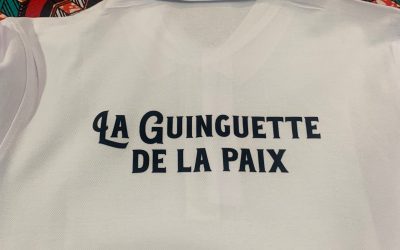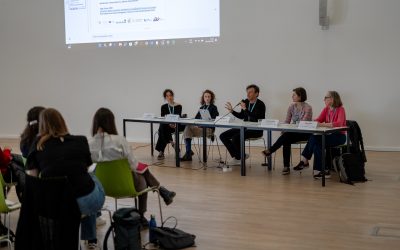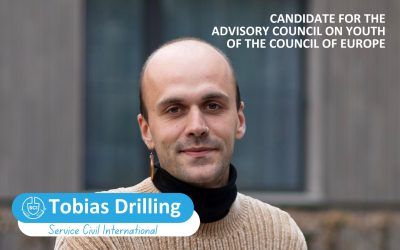Reflections on “From Conflict to Collaboration: Building a Culture of Peace in Diverse Communities” Training
Empowering Youth for Peace
Key Insights from our participants
In today’s world, where there are conflicts and divisions, fostering a culture of peace is paramount. Last month, 28 participants from all over Europe and different nationalities came together for a training course titled “From Conflict to Collaboration: Building a Culture of Peace in Diverse Communities”, organised by Service Civil International, and co-funded by the European Union through JINT, the Flemish Agency of the Erasmus+. They worked together to develop tools and collaborative strategies aimed at promoting peace within their respective communities.
 The training program aimed to provide a holistic approach to peacebuilding, encompassing theoretical knowledge and practical skills. Participants engaged in workshops, discussions, and interactive activities aimed at enhancing their understanding of conflict resolution, non-violent communication, emotional intelligence, and social diversity.
The training program aimed to provide a holistic approach to peacebuilding, encompassing theoretical knowledge and practical skills. Participants engaged in workshops, discussions, and interactive activities aimed at enhancing their understanding of conflict resolution, non-violent communication, emotional intelligence, and social diversity.
A notable aspect of the training was its diverse mix of perspectives and experiences, which enriched the learning environment and fostered a sense of global solidarity. The curriculum, spanning three pillars of peace, underscored the interconnectedness of peace on individual, community and environmental levels.
My experience in this training course was more than just great. The training team was so well prepared. The learning process was based on efficient methods – games, puzzles, theatre, interesting videos. It was a motivating environment and I took the best of it, that’s for sure.
Arjola Beqiri
The training’s methodology, characterised by non-formal education methods and creative facilitation techniques, created a motivating and stress-free environment conducive to learning. Energizers, games, and group work sessions kept participants engaged and focused while also fostering collaboration and teamwork.
Some participants found out that it is not only effective but also engaging. From games to theatre, every activity served a purpose in fostering a motivating environment for learning and growth. The training provided new strategies for peacebuilding and a network of like-minded individuals ready to initiate change in their communities.
Transformative! The training was eye-opening. Grateful for the chance to explore peace-building/strengthening strategies and connect with like-minded peers. Ready to bring this newfound wisdom back to my community!
Alp Aliyev

In addition to this, participants highlighted the benefit of this training to their professional careers in advocacy and training on how to use language as a tool for social cohesion and intercultural understanding. In particular, the concept of non-violent communication (NVC) and the three levels of peace.
In conclusion, empowered with the tools and wisdom gained during the training, participants poised to become agents of change in their communities. Through dialogue, understanding, and collaboration, they will continue to champion peace and diversity, bridging divides and building a future founded on unity and understanding.
![]()
![]()
![]()
Explore more news
Shared solidarity meal at Guinguette de la Paix
On March 20th, SCI France gathered for the shared Solidarity Meal at Guinguette de la Paix - a well-established monthly event at SCI France, centered this time on sub saharan cuisine. It was a welcoming event in which it was shared a pleasant meal in the spirit of interculturality. It was also a chance to introduce our new volunteers Lauriane and Rosanna and share a bit about the role they’ll...
CEV Spring Volunteering Congress
The Centre for European Volunteering (CEV) Spring Volunteering Congress 2025 in Mechelen was a gathering of volunteering organisations from across Europe to talk about the future of volunteering. Participants shared ideas and experiences on how volunteering can support communities, promote inclusion, and develop skills. The event included visits to local projects, group discussions, and...
Tobias Drilling candidate for the Council of Europe’s Advisory Council on Youth!
SCI is proud to be nominating Tobias Drilling on the Council of Europe’s Advisory Council on Youth!




